Starvation Threat for Orangutans
Orangutans are facing threats from habitat destruction and climate change. A new study has shown that, because orangutans lose muscle mass when less fruit is available to them, it is vital to protect their habitats to ensure their survival.
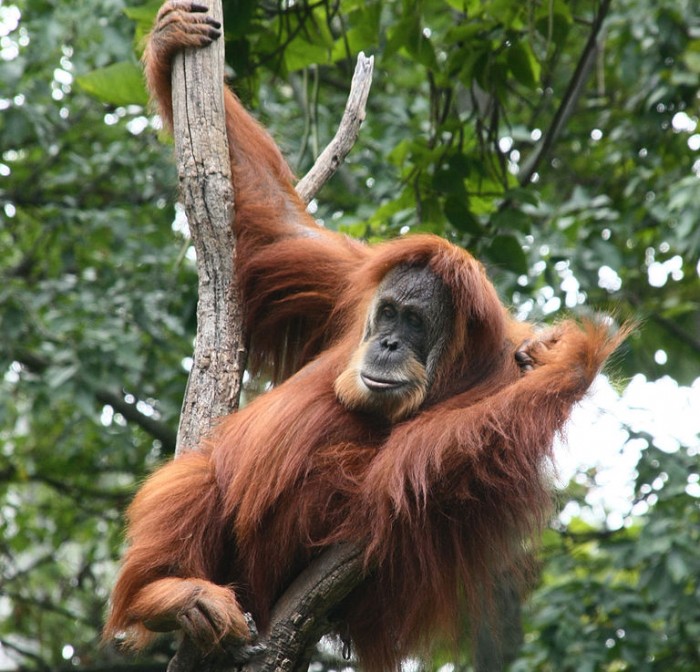 Image: Greg Hume (Own work) - CC BY-SA 3.0
Image: Greg Hume (Own work) - CC BY-SA 3.0 Wild orangutans are known for their ability to survive food shortages, but scientists have made a surprising finding that highlights the need to protect the habitat of these critically endangered primates, which face rapid habitat destruction and threats linked to climate change.
Scientists found that the muscle mass of orangutans on the island of Borneo in Southeast Asia was significantly lower when less fruit was available. That’s remarkable because orangutans are thought to be especially good at storing and using fat for energy, according a study in the journal Scientific Reports.
The findings highlight that any further disruption of their fruit supply could have dire consequences for their health and survival. Lead author Caitlin A. O’Connell says: “Conservation plans must consider the availability of fruit in forest patches or corridors that orangutans may need to occupy as deforestation continues across their range.”
Orangutans weigh up to about 180 pounds and live up to 55 years in the wild. One of our closest living relatives, they are the most solitary of the great apes, spending almost all of their time in trees. Orangutans in Borneo also spend some time on the ground. Deforestation linked to logging, the production of palm oil and paper pulp, and hunting all pose threats to orangutans, whose populations have plummeted in recent decades.
Orangutans also face great challenges in meeting their nutritional needs. With low and unpredictable fruit availability in their Southeast Asian forest habitats, they often struggle to eat enough to avoid calorie deficits and losing weight. Because these animals are critically endangered, researchers need to explore new ways to monitor their health without triggering more stress in them.
Researchers in the Laboratory for Primate Dietary Ecology and Physiology at Rutgers University-New Brunswick measured creatinine, a waste product formed when muscle breaks down, in wild orangutan urine to estimate how much muscle the primates had when fruit was scarce versus when it was abundant.
In humans, burning through muscle as the main source of energy marks the third and final phase of starvation, which occurs after stores of body fat are greatly reduced. So, the research team was surprised to find that both males and females of all ages had reduced muscle mass when fruit availability was low compared with when it was high, meaning they had burned through most of their fat reserves and resorted to burning muscle mass
Senior author Erin R. Vogel said: “Orangutans seem to go through cycles of building fat and possibly muscle mass and then using fat and muscle for energy when preferred fruits are scarce and caloric intake is greatly reduced. Our team plans to investigate how other non-invasive measures of health vary with muscle mass and how the increasingly severe wildfires on Borneo might contribute to muscle loss and other negative health impacts.”

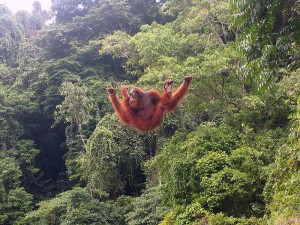
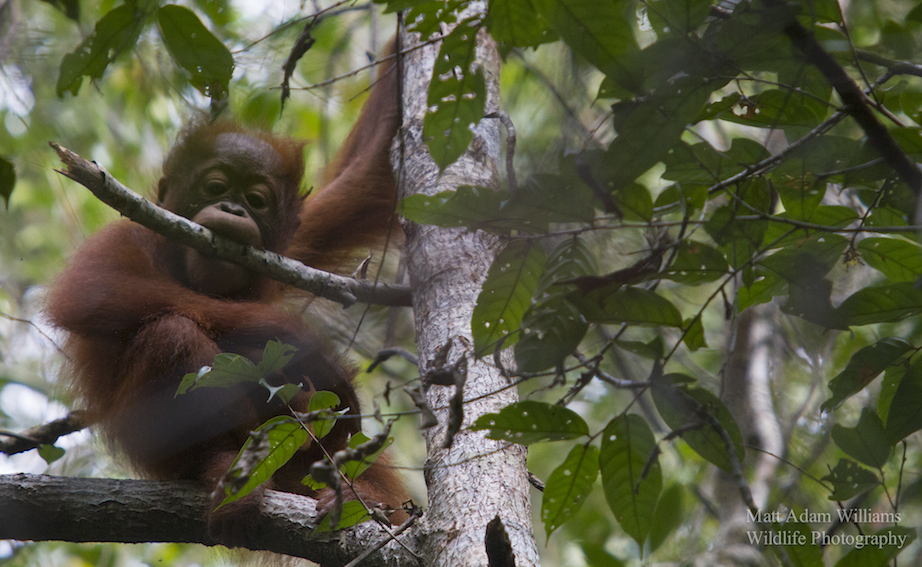
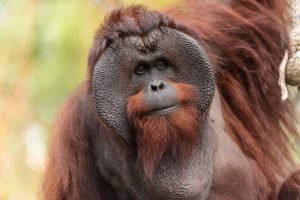
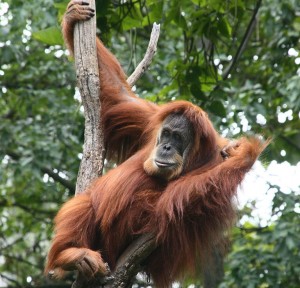
No comments yet.